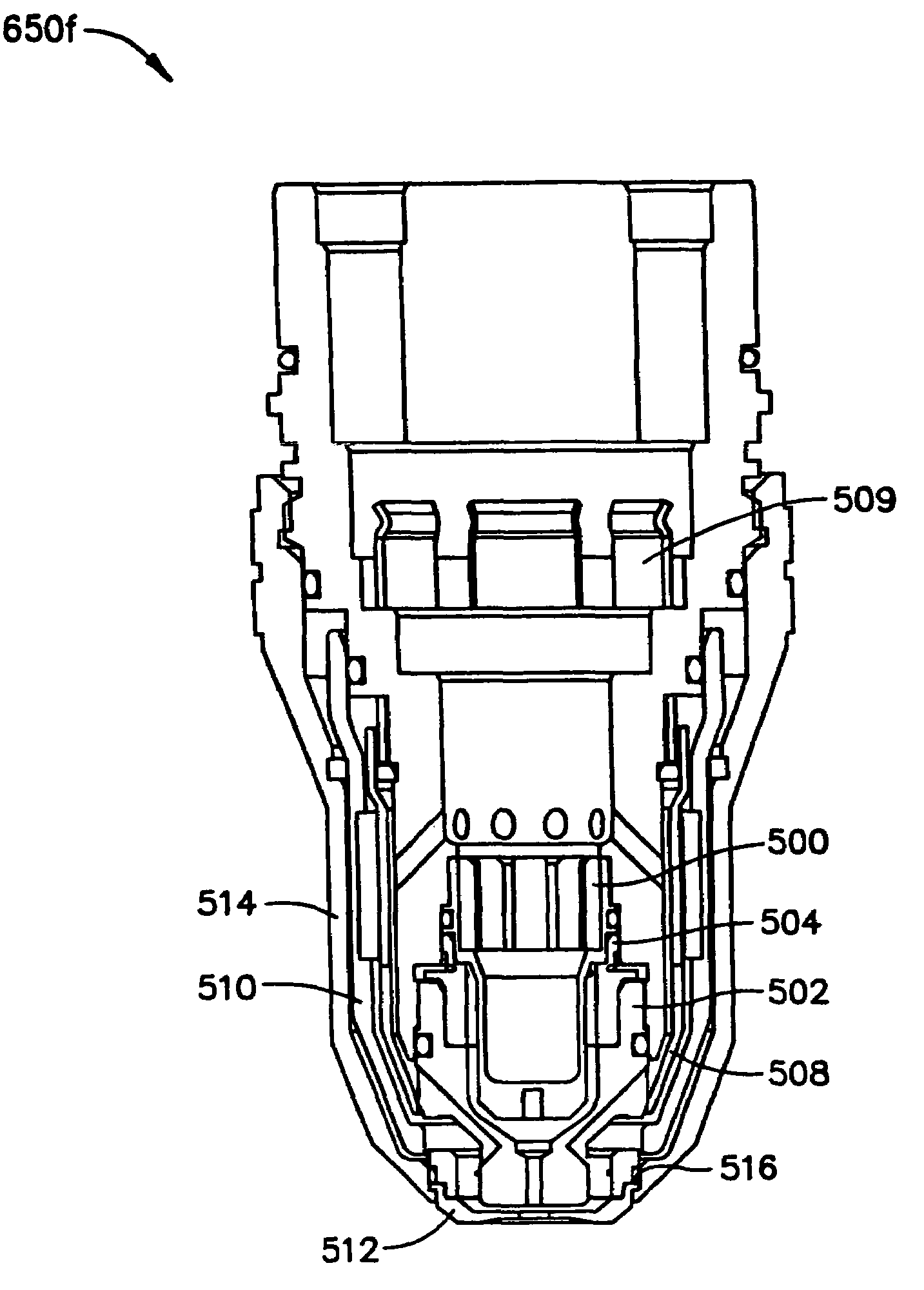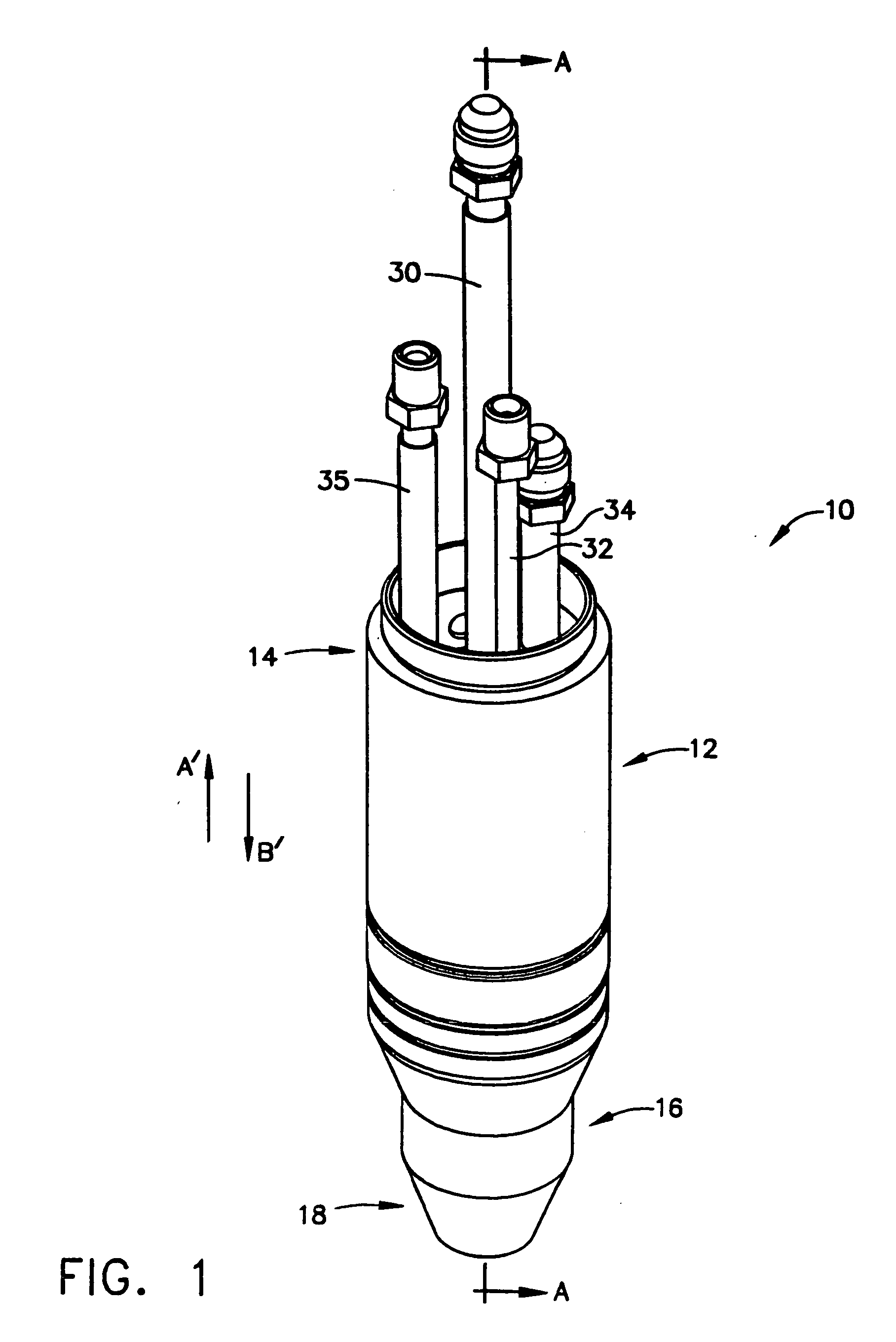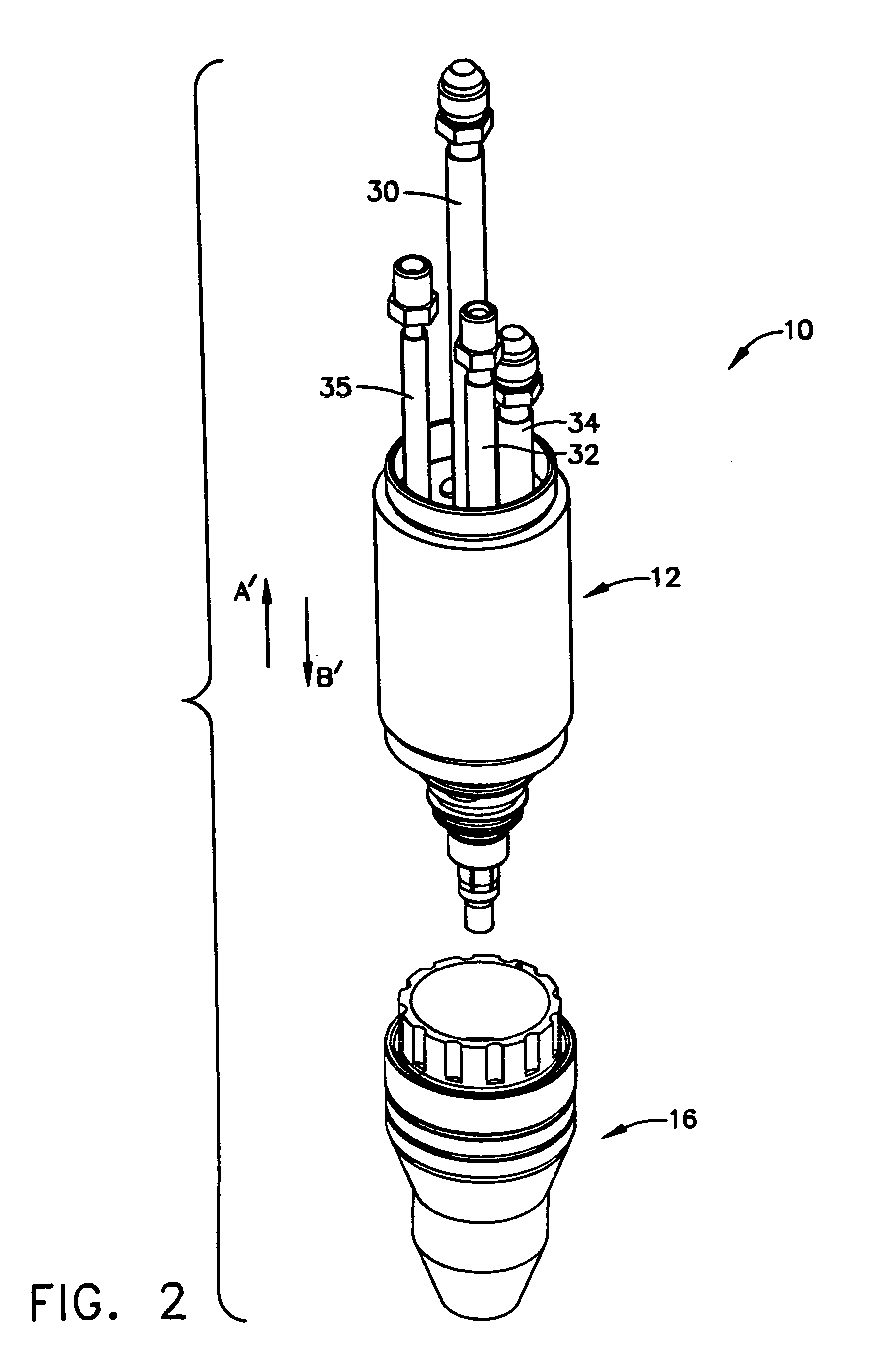Plasma arc torch electrode
a plasma arc torch and electrode technology, applied in the field of plasma arc torch electrodes, can solve the problems of time-consuming and cumbersome replacement of consumable components, limited cooling fluid flow in plasma arc torch known art, and inability to accurately measure the temperature of the plasma arc torch, etc., to achieve efficient attachment and improve cooling
- Summary
- Abstract
- Description
- Claims
- Application Information
AI Technical Summary
Benefits of technology
Problems solved by technology
Method used
Image
Examples
first embodiment
[0132]In a first embodiment as shown in FIGS. 12a through 12d, the electrode 100a defines flutes 220 and raised ribs 222. The flutes 220 form a fluid passageway between the electrode 100a and the cathode 22a (best shown in FIG. 12d) for cooling proximate the electrical contact between the electrode 100a and the cathode 22a. More specifically, the flutes 220 produce a relatively high velocity flow proximate the interface between the electrode 100a and the cathode 22a, where cooling is critical. Additionally, the raised ribs 222 are in electrical contact with an outer wall 224 of the cathode 22a, which provides electrical continuity between the cathodic members (i.e. cathode, electrode) of the plasma arc torch 10. Preferably, the outer wall 224 defines a plurality of axial tabs 226 as shown in FIG. 12b such that the cathode cap 40 and the coolant tube 42 may be more easily assembled within the cathode 22a.
[0133]Referring specifically to FIG. 12d, which is a view showing the lateral i...
second embodiment
[0134]As shown in FIGS. 13a through 13c, the electrode indicated as 100b may alternately define axial passageways 230 rather than the flutes 220, wherein the axial passageways 230 produce the relatively high velocity flow of the cooling fluid that flows proximally therethrough. Accordingly, the cooling fluid flows proximally through the axial passageways 230 to cool the interface between the electrode 100b and the cathode 22b. For electrical contact, an internal wall 228 is formed within the electrode 100b that makes contact with the outer wall 224 of the cathode 22b.
[0135]Referring to FIG. 13c, which is a lateral view through the interface between the electrode 100b and the cathode 22b, the electrode 100b defines a perimeter surface 229 and the cathode 22b defines a perimeter surface 331. Accordingly, the perimeter surface 229 of the electrode 100b is adjacent the perimeter surface 331 of the cathode 22b. (The surfaces are shown in FIG. 13c with a slight gap for illustration purpo...
third embodiment
[0136]In the electrode indicated as 100c in FIGS. 14a and 14b, the electrode 100c defines radial passageways 232 and axial slots 234 to provide cooling between the electrode 100c and the cathode 22c. The cooling fluid generally flows proximally to the radial passageways 232 and then proximally to the axial slots 234, wherein the cooling fluid exits the interface between the electrode 100c and the cathode 22c and proceeds through the passageways 130 as previously described. For electrical contact, an internal wall 236 is similarly formed within the electrode 100c that makes contact with the outer wall 224 of the cathode 22c. Accordingly, a perimeter surface of the electrode 100c is adjacent a perimeter surface of the cathode 22c to form a fluid passageway for cooling proximate the electrical contact.
PUM
| Property | Measurement | Unit |
|---|---|---|
| temperatures | aaaaa | aaaaa |
| temperatures | aaaaa | aaaaa |
| perimeter | aaaaa | aaaaa |
Abstract
Description
Claims
Application Information
 Login to View More
Login to View More - R&D
- Intellectual Property
- Life Sciences
- Materials
- Tech Scout
- Unparalleled Data Quality
- Higher Quality Content
- 60% Fewer Hallucinations
Browse by: Latest US Patents, China's latest patents, Technical Efficacy Thesaurus, Application Domain, Technology Topic, Popular Technical Reports.
© 2025 PatSnap. All rights reserved.Legal|Privacy policy|Modern Slavery Act Transparency Statement|Sitemap|About US| Contact US: help@patsnap.com



